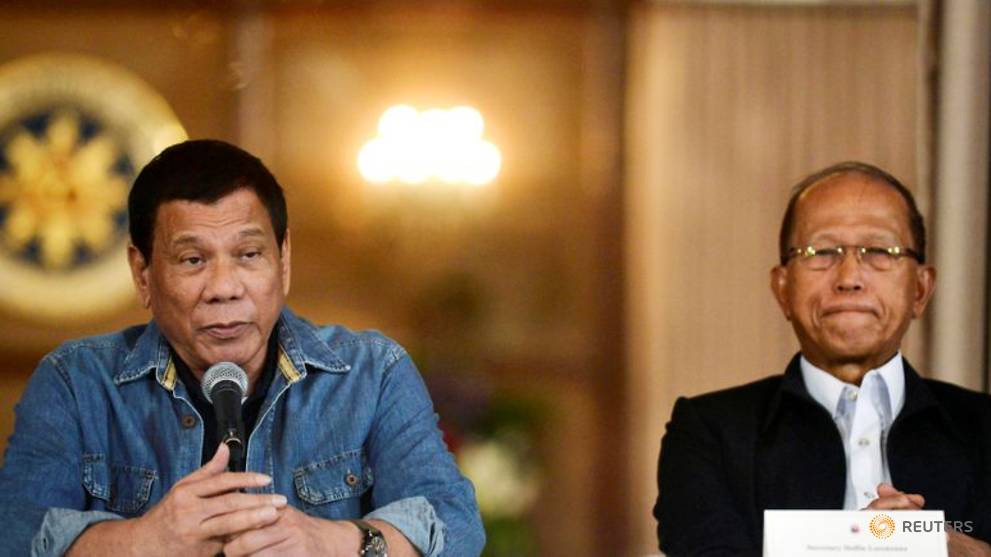
Philippines urges amicable approach to Beijing over South China Sea
MANILA: Philippine President Rodrigo Duterte on Friday (Sep 11) urged a peaceful way out of conflicts with China over the South China Sea and said international law must be followed, amid increased regional friction over military activities by Beijing and Washington.
Duterte made the remarks in a meeting with visiting Chinese defence minister, Wei Fenghe, whose tour of four Southeast Asian countries coincides with some rhetorical sparring between the United States and China over the disputed waterway.
"We must always be guided by our commitments in international law. Any and all disputes must be resolved peacefully," Duterte said in a statement.
The Philippines, particularly its military, has a deep mistrust of China over what it sees as intrusions into its territory, bullying of its fishermen and denial of access to its energy resources. Vietnam and Malaysia have made similar complaints this year.
China maintains its activities are lawful, because they are in its waters.
READ: Philippines minister accuses China of fabricating sea claims
Ties have improved somewhat due to Duterte's courting of and praise for the Chinese leadership.
Wei, who has also visited Indonesia, Malaysia and Brunei, had earlier met with Philippine Defence Secretary Delfin Lorenzana, an outspoken critic of China's maritime conduct.
A defence ministry statement summarising the meeting said Lorenzana and Wei committed to resolve disputes amicably and advance mutual trust and interests.
However, that statement contrasted sharply from one issued earlier and later retracted, which said Lorenzana had told Wei that any activities infringing on Philippine maritime territory would be challenged by its navy.
Lorenzana said the Philippines would patrol its waters, according to the retracted statement, which referred to a 2016 arbitration ruling on the South China Sea that Lorenzana had told Wei would be adhered to "without any possibility of compromise or change".
The arbitration case is highly sensitive to China because the tribunal invalidated its claim of historic jurisdiction over nearly the entire South China Sea.
The ministry gave no reason for revising the statement and did not respond to questions from Reuters. China's foreign ministry did not immediately respond to a request for comment.